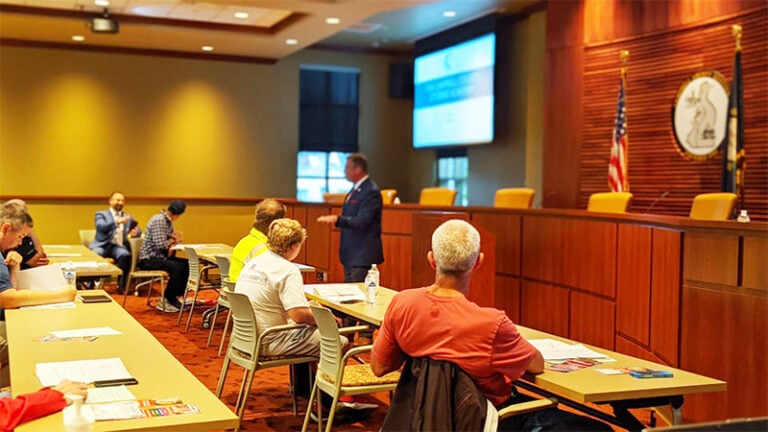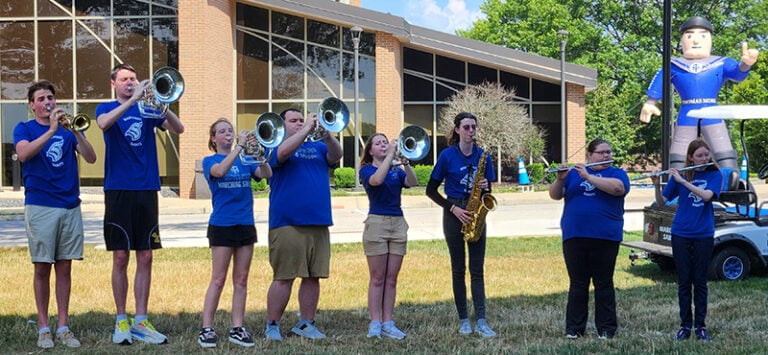State-licensed medical cannabis operations will be allowed in Covington as of Jan. 1.
The Covington Board of Commissioners voted this week to permit and regulate the growing, selling, and processing of medical cannabis under a statewide licensing system created by recent changes in Kentucky law. The new City ordinance also lays out the zoning districts where associated cannabis operations could locate.

Now the City has to decide other details, such as the cost of the City’s license, as well as hours of operation.
“Basically, this ordinance is a statement of intent – it announces that Covington intends to permit state-licensed medical cannabis operations, and it lays out where those operations will be able to locate,” City Manager Ken Smith said. “We recognize and appreciate that there are people suffering chronic pain and other medical ailments for which this will be a helpful medical tool, and we’re clearing the way for them – through their physician – to access that.”
But Smith noted that the ordinance won’t create “the wild, wild west of cannabis use” in Covington.
“The number of licenses statewide will be severely limited, and the required buffer and defined zoning districts means there will be only certain areas of Covington where operations can locate,” he said.
Under the state’s initial license availability period, these operations will be allowed to open come Jan. 1, 2025: cultivating operations of three sizes, processor, dispensary, and safety compliance (research and development) facility. Later, the state intends to add a fourth size, or “tier,” to cultivating operations and add production facilities.

However, there will be strict limits on the numbers of such licenses around the state, and restrictions on operations.
For example, there will be only 48 dispensary licenses for the whole state with up to four assigned to the nine-county Northern Kentucky region, with a maximum of one per county. Initially there will be only 16 cultivator licenses granted for the whole Commonwealth.
Furthermore, no operation can locate within 1,000 feet of a school or daycare, all businesses (including cultivation) must be in an enclosed building, and dispensaries can sell only cannabis (to those with a medical prescription) and no other product. Only registered cardholders can buy the product.
Areas of potential operation will be further limited by zoning. For determining which areas under Covington’s Neighborhood Development Code where cannabis operations will be considered “permitted uses,” the newly passed City ordinance interprets these operations as the following existing uses:
• Dispensaries – “Other Medical Facility (Pharmacy).”
• Cultivator operations — “Other Light Industrial.”
• Processor operations — “Micro-Manufacturing.”
• Safety Compliance facilities — “Research, Testing and Development Laboratory.”
• And Producer operations — “Other Warehousing and Freight.”
The Kentucky General Assembly passed cannabis legislation in 2023, Senate Bill 47 with additional provisions in 2024, House Bill 829, with both bills signed into law by Gov. Andy Beshear.
Medical cannabis refers to a prescription-based product that is used to ease symptoms caused by certain medical conditions, such as nausea from cancer treatments, and offer relief from chronic pain. In Kentucky, allowable products will include edibles, oils, tinctures, vapes, and raw plant material. State law forbids consuming raw plant material by smoking.

For more details, visit the Kentucky Office of Medical Cannabis and this Q&A document.
Covington had three options, as outlined in a presentation on medical marijuana — at 5:55 in the linked video — given June 11 to the Board of Commissioners by Sharmili Reddy, executive director of Planning and Development Services of Kenton County. Those options were: prohibit medical cannabis businesses in its jurisdiction, put the issue on the ballot for residents to decide, or permit operations and regulate them through zoning.
Covington is one of the few cities in Northern Kentucky to take the third route.
Businesses in Covington will require a license from both the Commonwealth and the City of Covington. They also must obtain general occupational licenses. Smith said the City of Covington will release additional details of its regulations via a release once those are in place and approved.
In general, cities can be more restrictive than the state but not less restrictive when they create regulations.
City of Covington

















